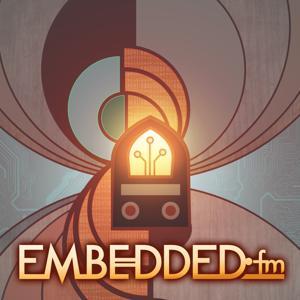Available on your favorite podcast platform.
components
desirable qualities in a platform and various considerationsa platform is a living being to some extentavailabilitystabilityperformancehow easy is it to fix when things breakadaptabilitythe iceberg analogy – most of your product is invisible, but this can causeproblems
how do you select the right technology for your platform?important not have biasproducts are short-lived, where platforms last a long time, so important tomake the right choices in your platform.
it is good to depend on standards to avoid lock-in to one tool/technologythe wrong solutions do not scalehave a network of experts you can reach out to and get the information youneed
knowing who to ask is the superpower in this agewhy you need some level of control over your platformdamage control: solve problems when they arisemoving things forward: can it be modified as new requirements come upbuilding platforms for reusebuild systems are importantautomationcontinuous integrationThe Yoe Distribution and the Simple IoT project are examples of platforms thatare re-usable and flexible, and applicable for a wide range of projects
recomposable platforms scale not just vertically, but horizontally, which isthe real power of them
a lot of up-front discipline goes into thisyou create a platform not only for others, but yourselfyou respect the APIs in the same way you expect others to respect themAPIs as a contract become very importantMost people can track product costs very well. Platform costs are harder totrack and are an investment in the future
example of an embedded Linux platform that goes into a product that livesfor many years. A lot of work is required upfront to get the base system
running, but then you can build on it for years.
A more constrained platform like a MCU + RTOS tends to be not as extensibleand more limited to a product.
Two kinds of platformsTransaction platforms: facebook, twitter, etcInnovation platforms: what we’ve been talking aboutpersonal platformwrite things downwhen helping someone, instead of emailing or messaging the solution, I writedown the solution in some type of long lived documentation, and then share
that documentation with them.
do you own your platform?owning your platform is more of a mindset rather than an rigid absoluteare you willing to learn and own the details of your platformwith OSS we not only use it, but we also have the option to be part of itDiscuss this episode at our

















